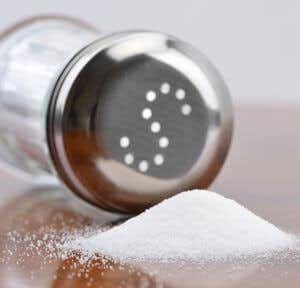
We have been told for decades that salt is sinful. Cut back on salt to lower blood pressure and reduce your likelihood of having a heart attack or suffering premature death. It has been a foundation of public health messages from the Centers for Disease Control and Prevention (CDC) and the National Institutes of Health (NIH). Challenge this conventional wisdom and you are likely to suffer the wrath of the medical establishment.
How Healthful Is Salt Restriction?
Unfortunately, actual studies suggest that a very low-salt diet may have unexpected consequences. For one thing, sodium restriction may actually raise cholesterol, triglycerides and stress hormones (American Journal of Hypertension, Jan. 2012). Feeding mice a low-salt diet and interrupting their usual sleep-wake cycle raises their blood pressure (Pati et al, Hypertension, March 2016).
A long-term study of over 3,000 people revealed an unexpected finding: Those who consumed the least amount of salt were at the highest risk of dying during the study (Journal of the American Medical Association, May 4, 2011).
What Is Going On?
This goes against the core belief system, but could there be an explanation? Sodium restriction appears to increase stress hormones including adrenaline (epinephrine) renin and aldosterone. There is growing evidence that higher levels of renin have negative effects on the cardiovascular system and may lead to an increased risk of heart disease, heart attacks and death.
Nearly 30 years ago there was evidence that levels of the neurotransmitter norepinephrine jumped dramatically in healthy young men when they were put on an enforced low-salt diet (Journal of Clinical Endocrinology, March, 1983). A fascinating, but ignored finding from this research was that the low-sodium diet was linked to serious sleeping problems:
The researchers concluded:
“The low sodium diet was also associated with disturbed sleep patterns: decreased rapid eye movement and slow wave sleep and increased wakefulness.”
What appears to happen when you restrict sodium intake is that the body tries to compensate. Not only does it churn out stress hormones, the whole “sympathetic” nervous system goes into high gear. When that happens, sleep patterns may be affected negatively.
The Downsides of a Low Salt Diet:
As far as we can tell, this research disappeared without a trace. So did other articles, like an essay pointing out that moderate sodium restriction helps a minority of patients lower their blood pressure but has other drawbacks (Alderman & Lamport, American Journal of Hypertension, June 1990).
Those include increasing blood pressure in some people; disturbing sleep; reducing intake of other valuable nutrients; and decreasing physiological resilience. We suspect that very few health professionals are aware of the possible unintended consequences of a low salt diet.
Death: The Ultimate Side Effect:
The whole point of restricting sodium intake is to lower blood pressure and thereby diminish the risks of heart disease and other cardiovascular complications. Ultimately, a low-salt diet is supposed to improve the most important outcome of all, ie, mortality. In a nutshell, you should live longer and healthier if you severely restrict sodium intake. Does that hold true?
The prestigious Institute of Medicine (IOM) reviewed all the available evidence regarding the impact of dietary sodium intake on a variety of health outcomes and concluded that there was a lack of evidence that low salt diets helped or harmed people (IOM. Sodium Intake in Populations: Assessment of Evidence. Washington, DC: Institute of Medicine (IOM) (May 14, 2013).
An overview of guidelines regarding sodium intake in the journal Frontiers in Endocrinology (Lausanne), Dec. 23, 2016) noted that:
“Higher heart rate associated with lower sodium intake may contribute to higher cardiovascular morbidity and mortality.”
In addition, a low salt diet may raise cholesterol:
“Moderate to severe sodium restriction has adverse effects on serum lipids.”
Blood vessels may become less flexible and functional on a low salt diet:
“…other studies demonstrated that low sodium intake was associated with endothelial dysfunction.”
Doctors argue that a low sodium diet should help people survive longer but the evidence for this is lacking:
“In addition, there was no strong evidence that sodium restriction reduced all-cause mortality and cardiovascular disease morbidity in individuals with hypertension or normotension.
“In contrast, observational studies and meta-analyses suggested that high sodium intake increased adverse cardiovascular outcomes.”
Take Home Message:
As in the story of Goldilocks and the Three Bears you don’t want your porridge to have too much or too little salt. As your grandmother may have said, moderation in all things is a virtue.

